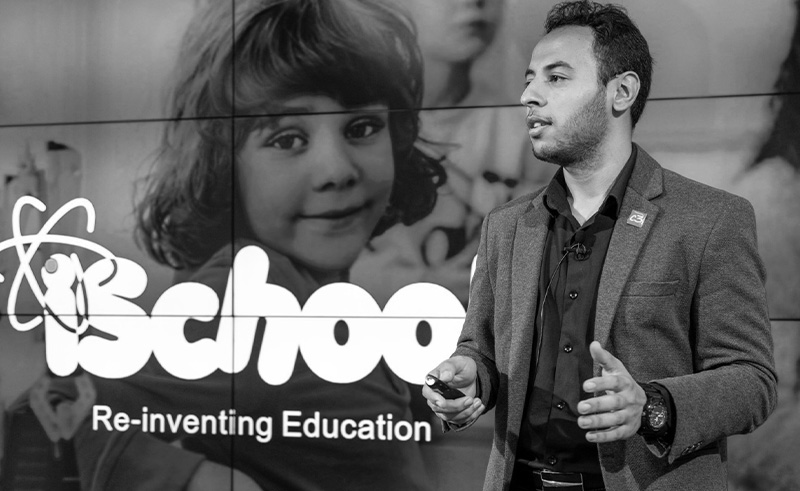Top Three Trends Shaping Edtech Startups After the COVID-19 Pandemic
With demand for innovative technology surging, edtechs emerged to fill in the gap and create effective learning solutions.

It’s no secret that the edtech industry has boomed during the COVID-19 pandemic. Schools and educational institutions were forced to close their doors and transition to online learning almost overnight, leading to millions of students and teachers to depend on digital tools and platforms, and embrace adaptive learning alternatives.
With demand for innovative technology surging, edtech startups emerged to fill in the gap and create effective learning solutions. From online tutoring to learning platforms and personalized learning apps, there was a massive pool of resources to facilitate digital learning.
This exponential growth led to increased investments in edtech startups in the region. In 2021, funding reached a record of about $1 billion, according to Magnitt. But this growth was short-lived. In 2022, the sector witnessed a 71% decline in funding, which was carried through to 2023.
With funding slowing down in the Middle East in the last two years, in line with the global funding winter, edtech startups have been badly hit. Unlike other popular sectors like fintech and ecommerce, which still managed to attract sizable investments in the region, edtech startups have had to adapt to emerging trends in the industry to stay relevant.
“There have been a lot of changes in the edtech sector,” Mohamed Gawish, Co-Founder and CEO of iSchool, tells StartupScene. “People were forced to use digital platforms and tools during the pandemic, regardless of the program and their experience. They had to use it, but now they don’t. So, the product has to have more benefits than before.”
INCREASED PERSONALIZATION
 Providing personalized and tailored content seems to be gaining traction in the edtech sector. Personalization not only increases students’ engagement levels, but also encourages them to continue learning and complete online programs.
Providing personalized and tailored content seems to be gaining traction in the edtech sector. Personalization not only increases students’ engagement levels, but also encourages them to continue learning and complete online programs.
“Insights indicate that we have to go towards personalization,” says Gawish. “One-to-one is the most efficient way to learn, according to research. You can focus on a student’s pace of learning and adjust the curriculum accordingly.”
Personalization also helps with retention rates, which is a major concern in online learning. According to a study carried out by the Massachusetts Institute of Technology in 2019, online courses recorded an average dropout rate of around 96%. Meanwhile, another study from the University of Warwick states that completion rates for most online learning courses is below 13%.
“There is a high drop rate among those doing online courses,” he adds. “They get bored of courses that are pre-recorded. So, now everyone is trying to do personalization and community-based learning to have high engagement. It’s not like before, where there were only a few online platforms and people had to learn online, now there are a variety of options.”
USING AI AND MACHINE LEARNING
 Like most industries, AI is rapidly transforming the edtech sector. With its ability to learn, adapt and analyze large amounts of data, it can play a key role in creating personalized learning experiences and providing effective education solutions.
Like most industries, AI is rapidly transforming the edtech sector. With its ability to learn, adapt and analyze large amounts of data, it can play a key role in creating personalized learning experiences and providing effective education solutions.
The use of AI in the education market is expected to grow significantly in the next few years, from $5.57 billion in 2024 to $21.13 billion in 2028, according to data by Research And Markets.
For Minnha, a Saudi startup that supports students to apply to universities and crowdfund tuition fees, integrating AI on its platform will help create a seamless user experience. “We are going to use AI to prepare students for where they want to go,” says Abdulrahman Al-Safa, CEO of Minnha. “We learn what program they want to study, help them acquire any training they need for them to be eligible to enroll in the university they want.”
He adds that this process will be fully automated, and will rely on machine learning to input data from universities while also learning student’s behaviors and preferences. “We aim for AI to be taking students on this journey, and to create a road map for each student depending on where they want to go,” he says.
LOOKING BEYOND ONLINE LEARNING
 While many edtech startups focus on providing online learning and tutoring, some founders believe that they should look beyond digital education.
While many edtech startups focus on providing online learning and tutoring, some founders believe that they should look beyond digital education.
“Here in the MENA region, most edtechs are giving only one service, which is mainly online classes and online tutoring, that’s it,” says Al-Safa. “There is no other service for edtech that is being provided.”
Indeed, this may be the case for edtech startups in the region, but some are starting to venture out of the typical online learning space and tap into other aspects of student life. One such startup is Unipal. A hybrid between edtech and fintech, the Bahrain-based startup provides discounts and offerings to students in Bahrain, and more recently Saudi Arabia.
“Students are very influential,” says Ali Alwai, Co-Founder of Unipal. “They are trendsetters, and they come in groups. It was a segment that wasn’t being served, and brands already were trying to get this segment, but they’ve been struggling to get them in the right place or in the right way.”
The platform has so far been well received. To date, the startup has about 100,000 students on its platform, and has been growing 280% YoY since entering the Saudi market.
But this wasn’t always the case. Launched during the pandemic, Unipal initially struggled to grow the platform. “We launched the app during the pandemic,” Alwai says. “So, when we were growing about 10% to 15% MoM, we thought that was the peak of Unipal. It flipped when the lockdown was over. This is when everything changed for us, in terms of traction, growth and potential. It gave us, as a team, a new dimension to look at. Now, we understand the potential that we have.”
It seems that while edtech startups can focus on digital education, they can also adapt their solutions to cater to other aspects of students’ lives. This will not only help ensure diversity in this space, but will ultimately drive the industry forward and attract much needed funding to continue growing in the region.
- Previous Article Cairo-Based Proptech Birdnest Secures Pre-Series A Funding
- Next Article How Ejari is Disrupting the Real Estate Sector in Saudi Arabia






















